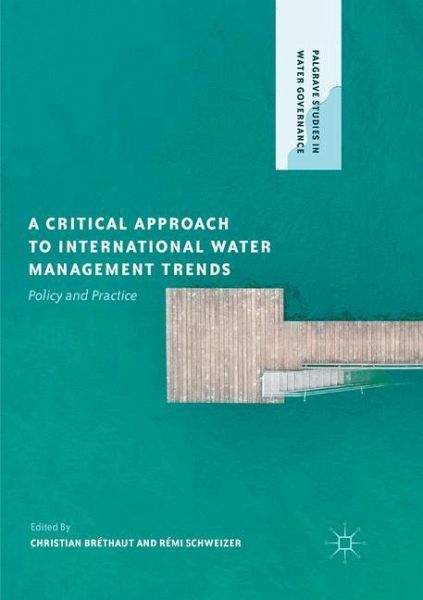
A Critical Approach to International Water Management Trends
Policy and Practice
Herausgegeben: Bréthaut, Christian; Schweizer, Rémi
Versandkostenfrei!
Versandfertig in 6-10 Tagen
91,99 €
inkl. MwSt.

PAYBACK Punkte
46 °P sammeln!
This edited volume provides a critical discussion of particular trends that are widely recognised to influence water management by comparing them with what is actually happening in the field. Among others, these trends include water security, adaptive or integrative management, and the water-energy-food nexus, which are often presented as essential means to reaching more sustainable and resilient water use. However, the extent to which these trends have managed to structure concrete practices in water management remains uncertain.Informed by empirically grounded research, each chapter of this ...
This edited volume provides a critical discussion of particular trends that are widely recognised to influence water management by comparing them with what is actually happening in the field. Among others, these trends include water security, adaptive or integrative management, and the water-energy-food nexus, which are often presented as essential means to reaching more sustainable and resilient water use. However, the extent to which these trends have managed to structure concrete practices in water management remains uncertain.
Informed by empirically grounded research, each chapter of this work engages with a particular approach, concept or theory. Together, they provide a nuanced picture of trends in water management that require universal remedies and global norms.
Informed by empirically grounded research, each chapter of this work engages with a particular approach, concept or theory. Together, they provide a nuanced picture of trends in water management that require universal remedies and global norms.












